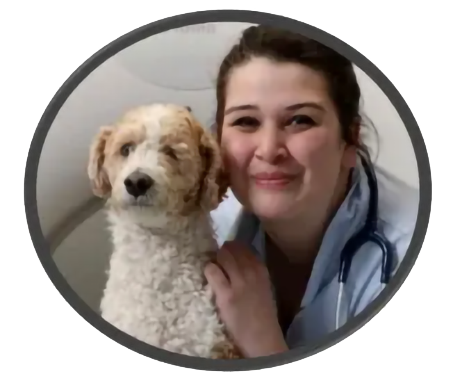Dr Vicky’s Best Cat Dental Care Tips That Can Change Your Cat’s Life
Your cat may be hiding dental pain right now, would you know it? Cat dental care matters for one reason—it hurts.There are no obvious symptoms, but...

Have a look through our list, can you see your dog’s breed?
|
|
There are a lot of amazing dog breeds on there, including my personal favourite, the boxer. Sadly, this isn’t a list that you want to see your dog on. This is a list of breeds which have a high chance of suffering from bloating of the stomach. Yes, as you can imagine this is incredibly painful and can happen to any breed.
Because of their deep chests, when these breeds bloat, the stomach will often twist 360o and cut off its own blood supply! Not only is this excruciating, but it is fatal unless they have immediate emergency surgery. The medical name for this condition is Gastric Dilatation and Volvulus – you may see it abbreviated to GDV.
Sadly, as a clinician in a 24-hour hospital, I’m seeing these patients almost every day. It is more common than you would dare yourself to believe. For instance, did you know that 40% of all Great Danes will be faced with this emergency? That’s almost one in two! A flip of the coin!
What are the signs that my dog may be suffering from bloat and stomach twist, or GDV?
If you are sharing your life with an at-risk breed, it’s critical to familiarise yourself with the warning signs.
The classical symptom which concerns us for a GDV is that the dog is trying to vomit, but nothing is coming up. However, this doesn’t always happen.
Other signs can include;
Bloated appearance around the abdomen
Lethargy
Restlessness
Repeatedly bowing, with the head down and bottom-up
Collapse
What can I do to help stop my dog getting stomach bloating?
What can be done to prevent my dog getting a stomach twist or GDV?
Gastropexy / Stomach-Pinning
I will make no apologies for saying that if your dog is on the high-risk breed list above, your dog should have a gastropexy, and you need to seriously discuss this with your veterinarian. A gastropexy is a prophylactic procedure which prevents the stomach from twisting and involves stitches which tack the stomach to the abdominal wall.
It is incredibly rare for a stomach to twist after this procedure. I have seen many dogs bloat but be saved from the fatal twist by pet-parents who have been proactive about getting a gastropexy for their dog.
Fear the stomach twist, do not fear the pexy!
This is a serious condition, and a very common emergency – if you have any questions or concerns about the information in this blog – do not hesitate to leave us a comment or get in touch.
Stay safe, fur-families!

Veterinarian

Your cat may be hiding dental pain right now, would you know it? Cat dental care matters for one reason—it hurts.There are no obvious symptoms, but...

What makes someone choose a career full of uncertainty, constant learning, and never-ending challenges?

Gentle. Precise. Designed for Comfort.